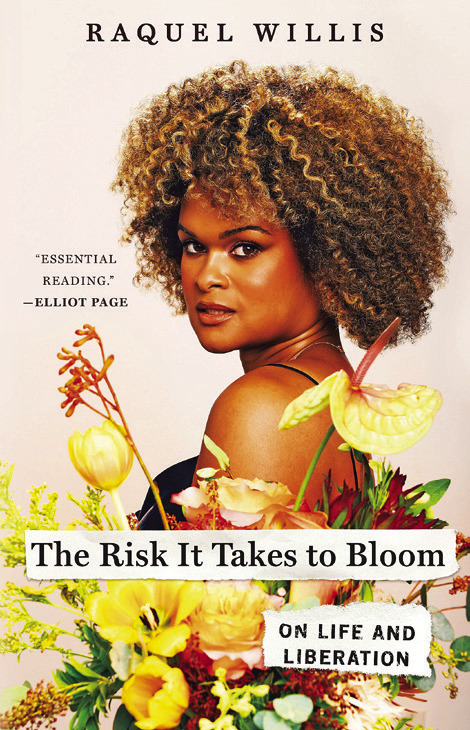The catalogs should start arriving soon. If you’re a gardener, that’s a siren song for you. What will you put in your pots and plots this spring? What colors will you have, what crops will you harvest? It never gets old: Put a seed no bigger than a breadcrumb into some dirt and it becomes dinner in just weeks. All it needs, as in the new memoir “The Risk It Takes to Bloom” by Raquel Willis, is a little time to grow.
The last time Raquel Willis remembers being completely safe and loved without strings attached was at age5, at a talent show. Shortly afterward, some elders began telling Willis to speak with “a particular brand of clear,” to move differently, to act differently. Willis was a Black boy then, and that was how her father worked against his son’s “softness.”
Willis didn’t know the truth about herself then, but other boys did. So, eventually, did the girls, as a grade school Willis “gravitated … toward” them. Young Willis prayed for God to “just make me a girl” but the bullying that had already begun only got worse.
She changed schools and things were no better; meanwhile, her father tried “even harder to correct who I was becoming.” Friends and online friends were encouraging and supportive, offering her courage to come out to her mother, who thought it was “a phase.” Her father was angry, then accepting. Other family members took Willis’ news in stride.
It was going to be OK. More than OK, in fact, because Willis was introduced to drag, and she started to feel more comfortable in women’s clothing than in men’s attire. To Willis, the drag troupe had begun feeling like family. She settled into life as a gay drag performer, because that was the “language” she had.
And then one day, while talking on the phone with an on-again, off-again boyfriend, something important hit Willis, hard.
“I think I’m a woman,” she told him. “I’m a woman. … I am.”
Sometimes, it takes a while to understand the person you really are. Half a book, in this case, because “The Risk It Takes to Bloom” is quite wordy: author Raquel Willis tells her story in excruciating detail, and it can get rather long.
And yet, the length allows for clues that readers can follow, to truly see the woman, the activist and writer, who penned this book. But is that enough to attract readers? What sets this book apart from other, similar books by star-powered Black trans women?
The answer lies in the approachability of its author.
Willis tells her tale with a more anchoring feel, more down-to-earth, like she could have lived up the street from you or sat in the last row of your high school algebra class. You could have known her. You could know someone like her. Or Willis could be you.
Indeed, this book might hold plainspoken inspiration for anyone who needs it. If that’s you, get “The Risk It Takes to Bloom,” find a chair, and plant yourself.
— The Bookworm Sez


